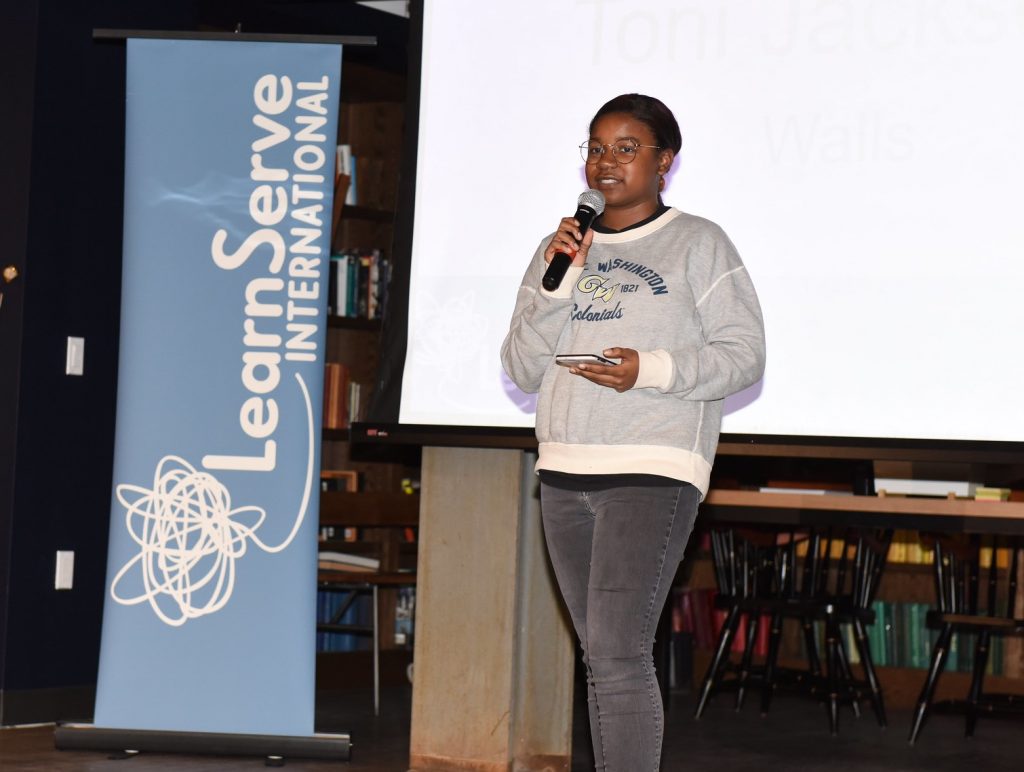
“Hi my name is Toni, and I’m a Sophomore at School Without Walls High School. But more importantly, I’m a musician.” It’s clear from the first words of her elevator pitch that Toni (LearnServe Fellow 2020) cares deeply about music.
As both a classical cellist and electric bassist, Toni is acutely aware of the lack of representation of Black and Latinx musicians in classical music. And she knows first-hand just how much of a difference representation can make. As she shared with us, “I can recognize the importance of having influences that look like you from a young age.”
“Classical music has always been seen as something for rich, white men,” Toni reflected, “and I want to change that.” In April, she launched Cadenza, a social venture bringing musical awareness campaigns and workshops to DC high schools. Her goal is to encourage Black and Latinx, female musicians to pursue music in college and professionally by breaking down barriers in the college audition process.
You can watch Toni’s elevator pitch to learn more about her work through Cadenza.
We interviewed Toni about how the core issues behind Cadenza’s mission have grown and changed since April, and her plans for the future of her social venture.
How has the issue of representation in classical music changed recently?
The pandemic has affected many musicians, as for a lot of them their main source of income has been eliminated. They may not be working again for a very long time. Broadway is closed for the rest of the year, which affects the pit musicians strongly while they already make less money than actors on stage.
In a post-covid world there is going to be a lot more desire for more secure jobs (aka anything not involved in the arts); even more-so for black performers, as not only is it harder to break into the industry but also they typically do not have the generational or familial wealth to fall back on in case their jobs do not work out. Representation is more important than ever.
What are your plans for Cadenza in the coming months?
With covid happening now, I think it is best for me to do my venture based online. Not only is it safer, but also in general more accessible to people not just in the DMV. This is not just a DC-centric issue. I also think that being online allows for more collaborators, so then there is room for different voices to be heard, and it’s not just me talking about other people.
So in the coming months, I hope to reform my venture, figure out how I can further spotlight black musicians, and give them a platform where they feel supported.
